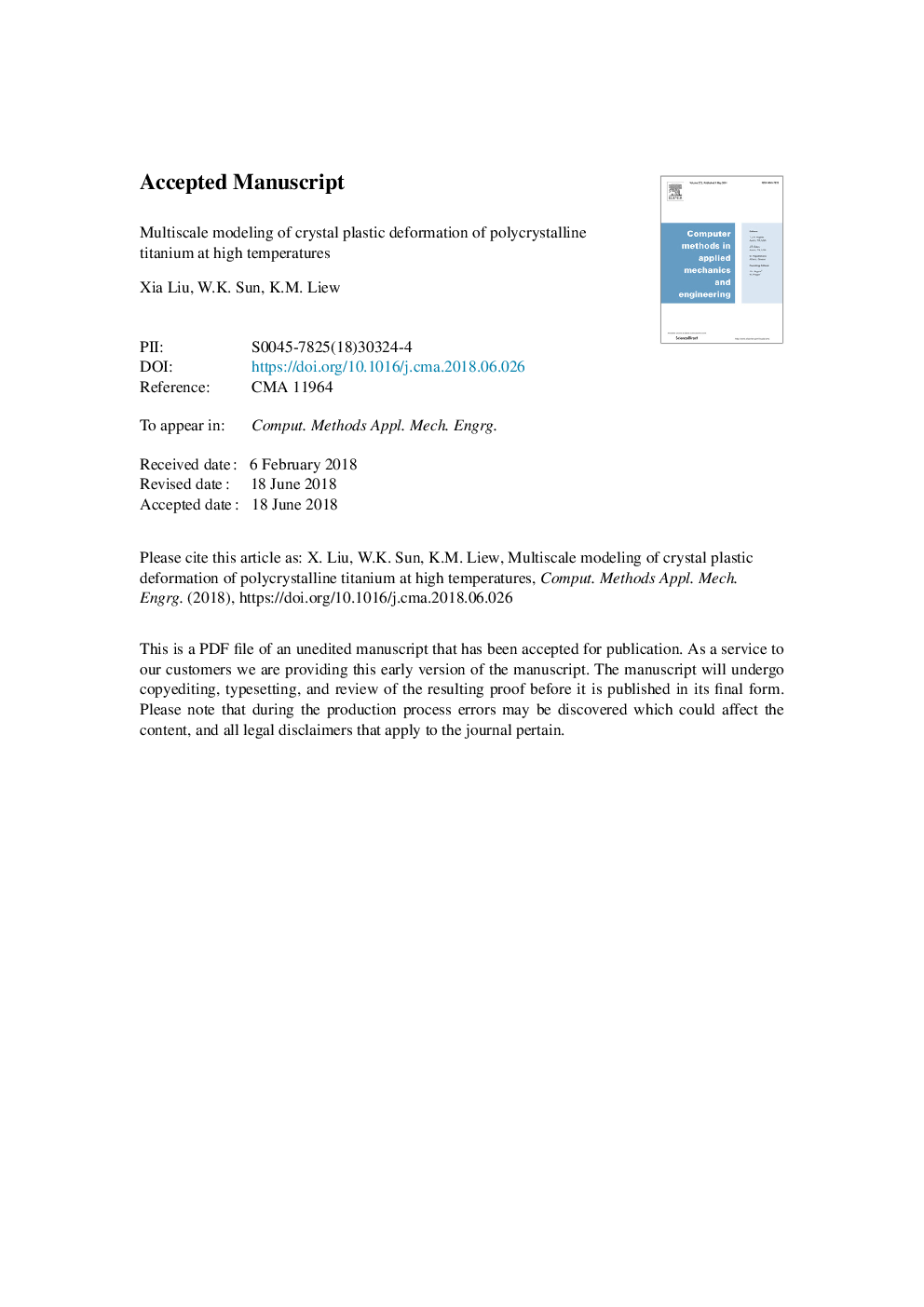| Article ID | Journal | Published Year | Pages | File Type |
|---|---|---|---|---|
| 6915335 | Computer Methods in Applied Mechanics and Engineering | 2018 | 40 Pages |
Abstract
This paper presents a multiscale modeling framework based on microscale crystal plasticity theory and macroscale element-free methodology for computational simulation of polycrystalline metals. The element-free method employs an improved moving least squares (IMLS) shape function in the Ritz procedure for computational simulation. In the multiscale modeling scheme, the macroscale strain increments of polycrystalline metals are solved by the element-free method and transferred into the mesoscale grains through a scale transition law, and further transferred into the microscale slip systems through the Schmid's law. The shear strain increments of all grains are then summed up and averaged to calculate the macroscale plastic strain increment. Functions of the temperature-related hardening parameters of the slip systems are determined by calibrating with experimental data. Then, tensile tests are performed on polycrystalline sheets to study their deformation behavior at elevated temperatures. The plasticity of polycrystalline sheets is found to be significantly affected by the grain size. The concentration of shear stress and additional hardening are occurred at the grain boundaries of soft and hard grains. Moreover, it is revealed that the yield strength of the polycrystalline sheets is greatly reduced as the hardening parameters and thermal softening factor decrease at elevated temperatures.
Related Topics
Physical Sciences and Engineering
Computer Science
Computer Science Applications
Authors
Xia Liu, W.K. Sun, K.M. Liew,
